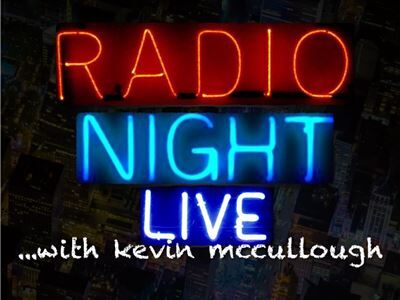Lawsuit against Brown University sparks debate on campus police secrecy at private colleges
News > National News

Audio By Carbonatix
7:05 AM on Tuesday, September 30
By KIMBERLEE KRUESI
PROVIDENCE, R.I. (AP) — A new lawsuit against Brown University has renewed questions surrounding the secrecy afforded many law enforcement officers employed by private colleges and universities across the U.S.
Unlike public campuses, private higher education institutions are largely exempt from disclosing arrest records, incident reports and other documents even as they employ officers who have the authority to detain students, as well as, in some cases, use force. This lack of transparency has long raised objections from watchdog groups and open government advocates who say such records are critical to holding law enforcement accountable.
In a recently filed legal challenge, the American Civil Liberties Union of Rhode Island is hoping to make a dent in that practice by arguing that Brown’s police department should comply with the state’s public records law.
“These private university police officers have the same arrest powers, detention powers, and other powers that any other police officer has in the state working for a city or town,” said Steven Brown, Rhode Island's ACLU executive director. “We think that in light of that fact, they should be treated the same as public police officers.”
In a statement, Brown spokesperson Brian Clark said the university was “prepared to mount a strong effort” explaining why the state's public records law does not apply to them, but added that Brown works closely with Providence police, which is subject to the statute. Brown's attorneys have filed a motion to dismiss the suit.
Connecticut, Georgia, North Carolina, Ohio, Texas and Virginia are among the few states where private institutions’ police departments are subject to public records laws, according to the Student Press Law Center. The rest are largely exempt. In Massachusetts, the state Supreme Court explicitly ruled Harvard University's campus police were not subject to the state's open records laws because they were a private university.
At Brown, the ACLU is representing two journalists who were both denied their public records requests seeking arrest reports made by Brown's officers. ACLU claims Brown's campus police operate under state-authorized police powers, which in turn makes them subject to Rhode Island public records law.
Both reporters, one a former Brown student who wrote for the independent university newspaper and the other a reporter with Motif Magazine, filed complaints with the state hoping to appeal their denial. However, the state attorney general's office issued an opinion siding with Brown police.
“Whenever people are being arrested and criminally charged, state law gives the public — and therefore the press acting on behalf of the public — the right and the duty to find out what the police are doing in their name,” said Michael Bilow, a plaintiff in the lawsuit and a reporter with Motif Magazine.
“If the public and the press can’t find out what the police are doing using the power of the law then what you end up with is a secret police,” he added.
Yet even as access to public records on private campuses may be challenging, these schools are subject to some federal disclosure requirements when it comes to crime data.
Under the Clery Act, colleges and universities that receive federal funding are required to collect data on campus crime and notify students of threats — something that the majority of both private and public schools accept. Schools must disseminate an annual security report that includes crime reports and information on efforts to improve campus safety.
These reports provide public safety information on their campus, but they're not always comprehensive. Last year, Liberty University agreed to pay the U.S. Department of Education an unprecedented $14 million fine in part for its failure to disclose information about crimes on its campus.
One former Brown police officer, who served at the department for 18 years, says he became increasingly alarmed at the culture he observed. Michael Greco says he witnessed a police force that prioritized limiting negative attention about the school, noting that fellow officers would often refer to the police department as the “Queen's army” dedicated to keeping information inside the “Brown bubble.”
“It all revolved around this loophole in the law that Brown’s a private institution with police powers,” he said. “They can then take what should be a public record and make it into a private record. And it seems that that was our primary purpose.”
Greco remembered one incident in 2021 where he and fellow colleagues were instructed not to use radios when responding to a possible bomb threat on campus where someone was threatening to “shoot cops.” Greco said the department didn't want to alert Providence police, which monitors the radio and would respond to that type of incident.
While the bomb and shooter ended up being a false alarm, Greco says leadership was unhappy with how he later described the incident in his report summarizing the events. Greco has since left the department and filed a workers' compensation claim against Brown after developing post-traumatic stress disorder that he says he began experiencing after the 2021 incident. The case is being settled, according to court documents.
Greco has since publicly called for more changes inside Brown University, including testifying in front of lawmakers in support of changing state law to explicitly make universities like Brown subject to open records law.
“I think there should be public pressure to get some of this changed,” he said. “They should be held at least to the same standards as a public police department.”
Similar concerns are shared by some of the students, who are also watching college campuses handle high-profile protests and working under President Donald Trump's administration.
“I think there needs to be greater transparency about what’s going on with these arrests on campus, especially at a time when a lot of the public doesn’t know what’s happening in higher ed and there’s disagreements nationally about the direction of higher ed and what it stands for,” said Audrey Gmerek, a Brown University student.










